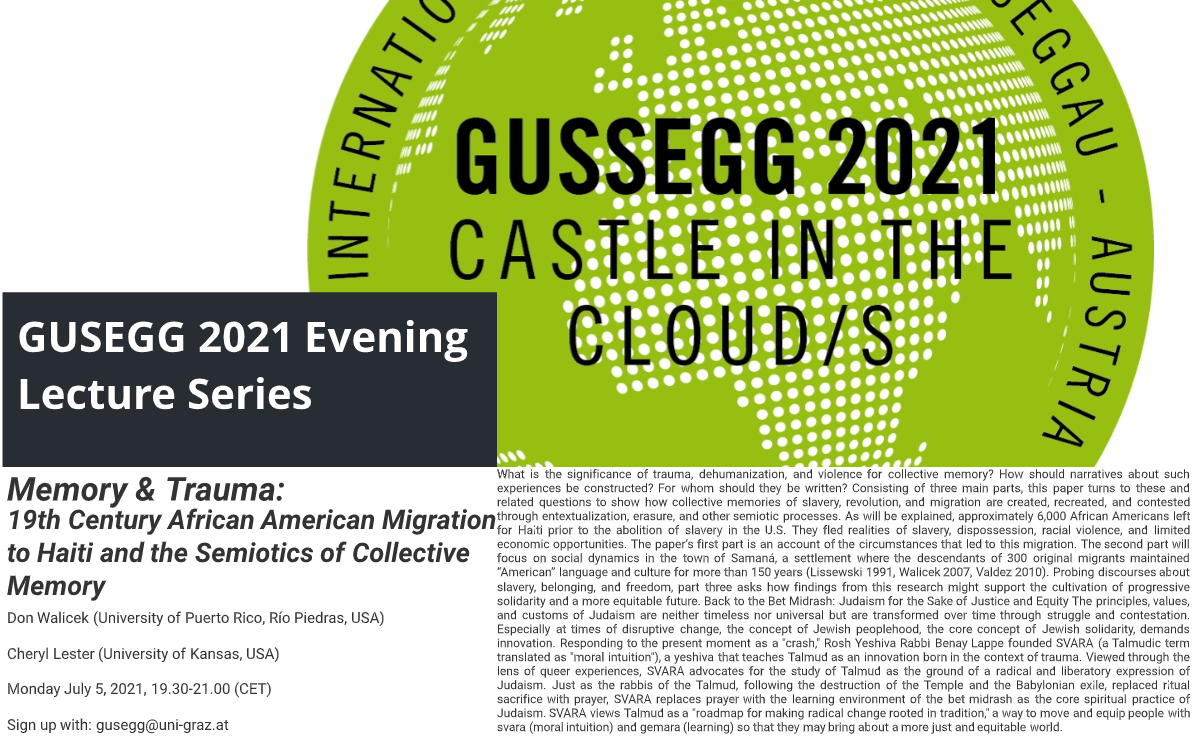What is the significance of trauma, dehumanization, and violence for collective memory? How should narratives about such experiences be constructed? For whom should they be written? Consisting of three main parts, this paper turns to these and related questions to show how collective memories of slavery, revolution, and migration are created, recreated, and contested through entextualization, erasure, and other semiotic processes. As will be explained, approximately 6,000 African Americans left for Haiti prior to the abolition of slavery in the U.S. They fled realities of slavery, dispossession, racial violence, and limited economic opportunities. The paper’s first part is an account of the circumstances that led to this migration. The second part will focus on social dynamics in the town of Samaná, a settlement where the descendants of 300 original migrants maintained “American” language and culture for more than 150 years (Lissewski 1991, Walicek 2007, Valdez 2010). Probing discourses about slavery, belonging, and freedom, part three asks how findings from this research might support the cultivation of progressive solidarity and a more equitable future.
Back to the Bet Midrash: Judaism for the Sake of Justice and Equity
The principles, values, and customs of Judaism are neither timeless nor universal but are transformed over time through struggle and contestation. Especially at times of disruptive change, the concept of Jewish peoplehood, the core concept of Jewish solidarity, demands innovation. Responding to the present moment as a "crash," Rosh Yeshiva Rabbi Benay Lappe founded SVARA (a Talmudic term translated as "moral intuition"), a yeshiva that teaches Talmud as an innovation born in the context of trauma. Viewed through the lens of queer experiences, SVARA advocates for the study of Talmud as the ground of a radical and liberatory expression of Judaism. Just as the rabbis of the Talmud, following the destruction of the Temple and the Babylonian exile, replaced ritual sacrifice with prayer, SVARA replaces prayer with the learning environment of the bet midrash as the core spiritual practice of Judaism. SVARA views Talmud as a "roadmap for making radical change rooted in tradition," a way to move and equip people with svara (moral intuition) and gemara (learning) so that they may bring about a more just and equitable world.
July 5, 2021 / 19:30-21:00 (CEST)
Sign up with gusegg@uni-graz.at
